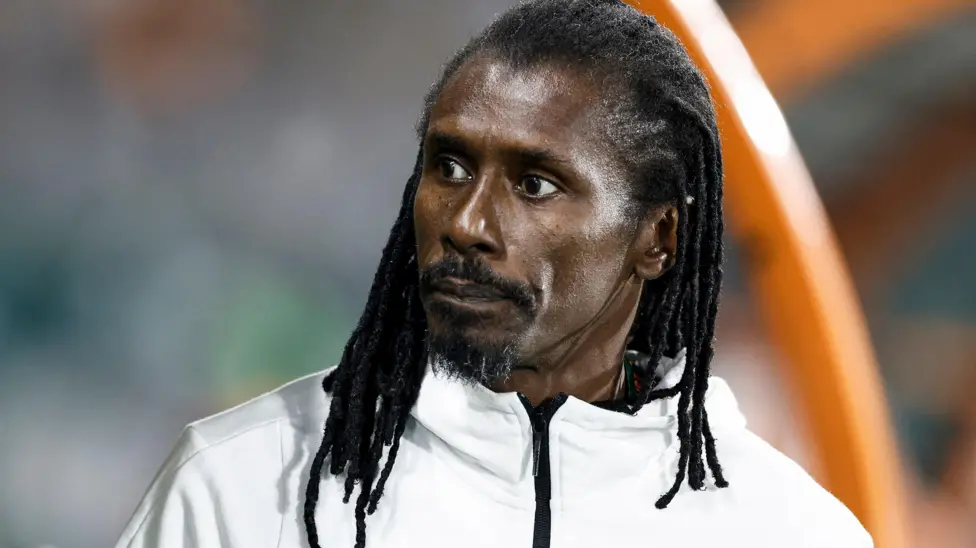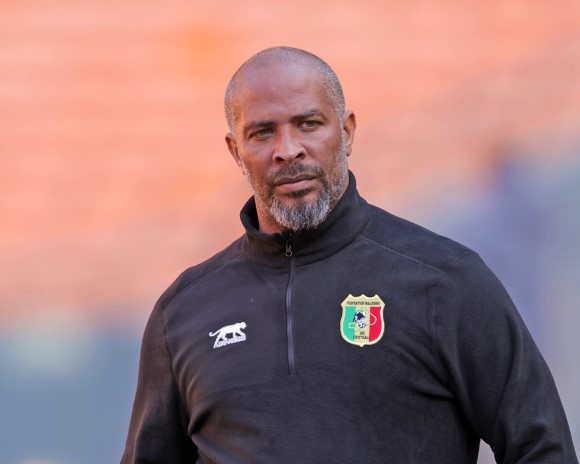Aliou Cisse’s tenure as head coach of Senegal’s national football team has come to an end after more than nine years of leadership. The Senegalese Football Federation (FSF) announced his departure just days before the team’s next set of 2025 Africa Cup of Nations (Afcon) qualifiers, marking the close of a significant chapter in Senegalese football history.
Cisse, 48, took charge of the Teranga Lions in March 2015, guiding the team to their first-ever Afcon title in 2022. That victory, delayed from 2021 due to the pandemic, solidified his place in Senegal’s football history. Under his stewardship, Senegal consistently ranked among the top African football nations, holding the title of Africa’s highest-ranked team for over four years. His leadership also saw the team qualify for two FIFA World Cups, in 2018 and 2022, and reach the final of the 2019 Afcon, where they finished as runners-up.
However, despite these achievements, Cisse’s tenure has ended following the failure to meet key objectives set by the FSF and Senegal’s Ministry of Sports. The government, which pays the coach’s salary, decided not to extend Cisse’s contract after evaluating the team’s recent performance. A letter from the Ministry of Youth, Sports, and Culture, led by Khady Diene Gaye, cited unmet expectations from the 2022 World Cup and the 2023 Afcon, as well as the team’s drop in world rankings. These factors contributed to the decision to end Cisse’s time as coach.
The timing of this decision has raised eyebrows. Cisse had already prepared to announce his squad for the upcoming Afcon qualifiers against Malawi, scheduled for this month, but was relieved of his duties just nine days before the matches. This move has surprised many, particularly given his long-standing relationship with the FSF and the national team. The FSF, despite their strong desire to renew Cisse’s contract, acknowledged the decision with a statement thanking him for his contributions and the many successes he achieved with the team.
Under Cisse’s guidance, Senegal’s football grew to new heights. His crowning achievement came in February 2022 when he led the team to their first-ever Afcon title, a moment that will forever be etched in the memories of Senegalese football fans. The victory, secured in a penalty shootout against Egypt, brought long-awaited glory to a nation that had come close several times but had never clinched the top prize in African football.
However, the team’s fortunes have waned recently. The Teranga Lions were eliminated in the last 16 of the 2023 Afcon, losing on penalties to hosts Ivory Coast. This early exit, coupled with their failure to reach the quarter-finals of the 2022 World Cup, has led to growing dissatisfaction among both the government and Senegalese supporters. This discontent was cited as a key factor in the decision not to renew Cisse’s contract.
Despite these setbacks, Cisse’s contributions to Senegalese football cannot be understated. A former captain of the national team, he led Senegal to their first World Cup quarter-final in 2002, a run that included a memorable victory over defending champions France. His coaching career began in 2011, and he took charge of the senior team in 2015 following a stint with the Under-23s, where he led Senegal to the 2012 Olympics.
Cisse’s journey with Senegal is filled with both triumphs and personal tragedies. His life was touched by the Joola ferry disaster in 2002, which claimed the lives of 11 of his family members, including his sister. This tragedy, along with his footballing successes and failures, shaped his resilience and leadership over the years.
As Senegal prepares for the future, the FSF has yet to announce an interim coaching team for the upcoming Afcon qualifiers. Cisse’s departure leaves big shoes to fill, but his legacy will undoubtedly continue to inspire future generations of Senegalese footballers.














Leave a comment